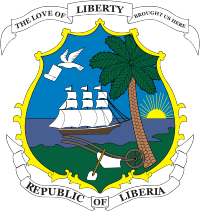 Space
Program of Liberia
Space
Program of Liberia 
------The Liberean Space Agency------
|
Level = 0 Development: Very Low
What has been going on in Liberia?
What kind of space power do they have?
Does Liberia have space weapons?
What are they planning over there? |
|
Population: 3,300,000 / Language: English / GDP: $900 / Cities: Monrovia
Liberia's Space Infrastructure Liberia is one of the world's poorest countries, with a nonexistant space program. Not only does it certainly not have an agency, but also no infrastructure in which one could arise. Its major university, the University of Liberia, does not have space related eucational content, lacking astrophysics, astronautics, aeronautics and natural sciences. The government has no ministry devoted to science of this type. Liberia has no history of being part of any organization dealing with space, nor has any launch capability. Liberia lacks the industrial base, the educational base and the political foundation for a process like this to occur within it. It has no functioning university with an astrophysics or astronautics program, this includes Monrovia's University of Liberia. Liberia operates no satellites and, not having a presence, has no space power. The government of Liberia in Monrovia has no plans for attempting to further any ambition in space development or research. |
None
|
TODAY AND INTO THE FUTURE
Nothing Planned
|